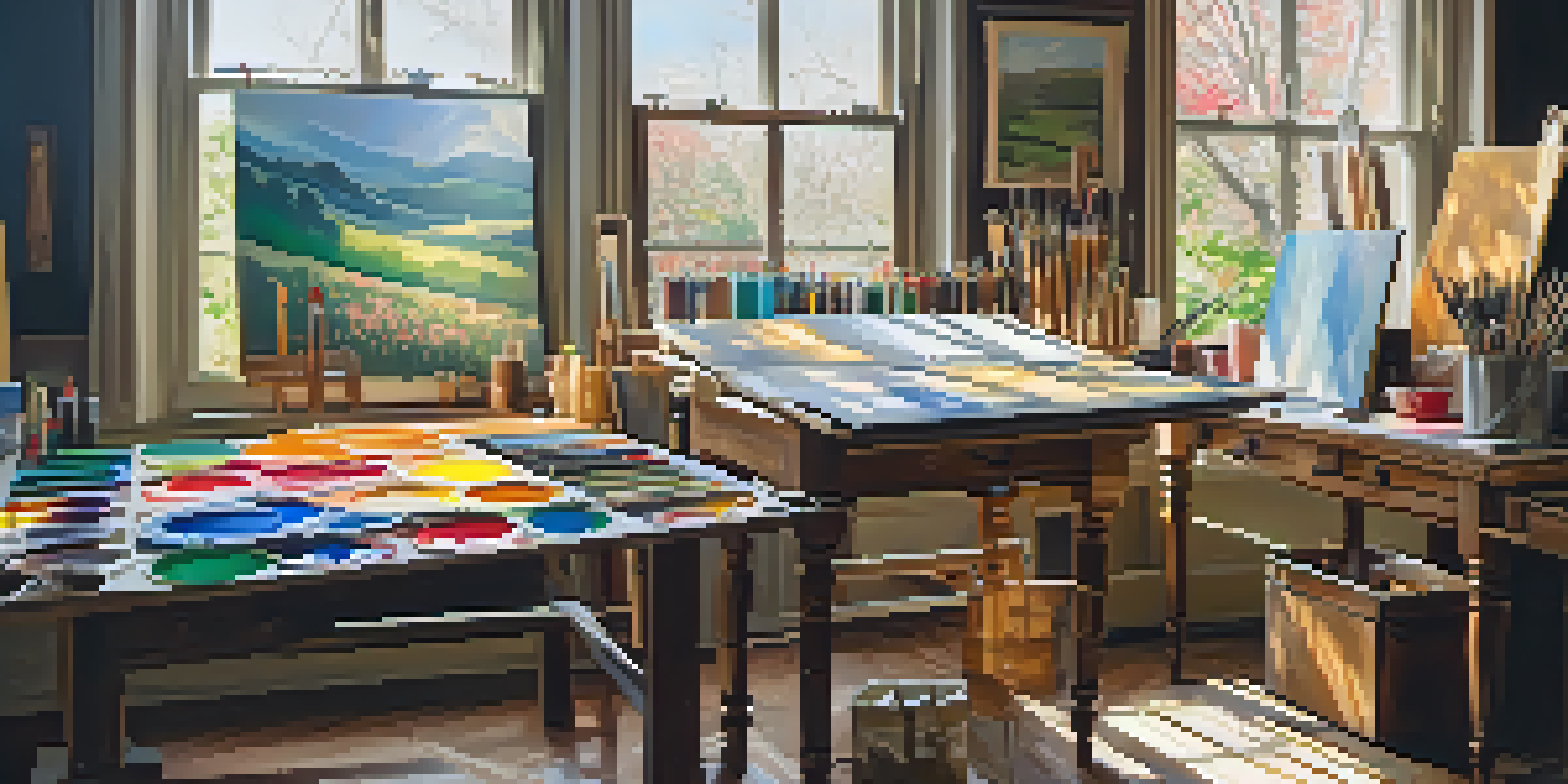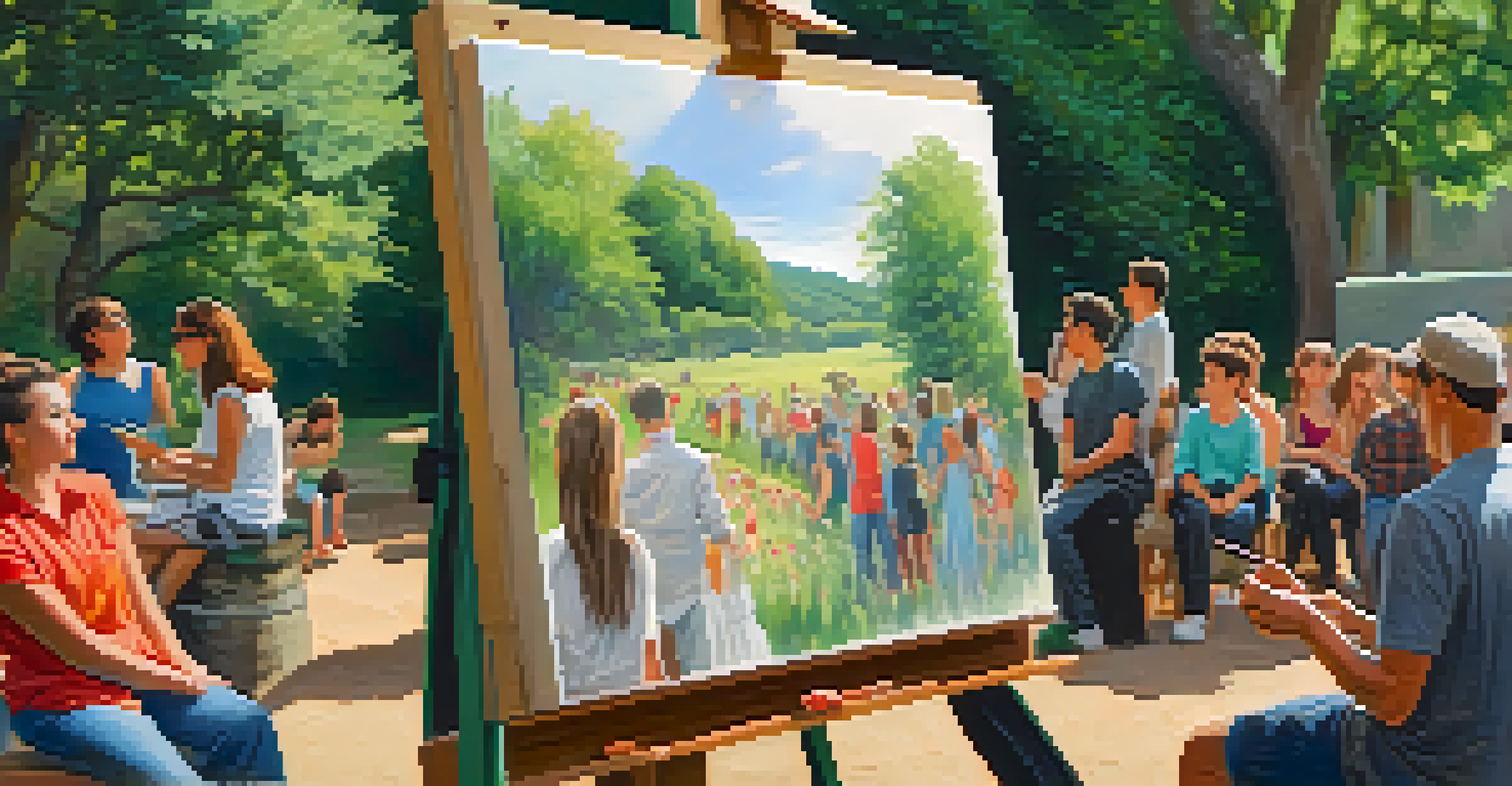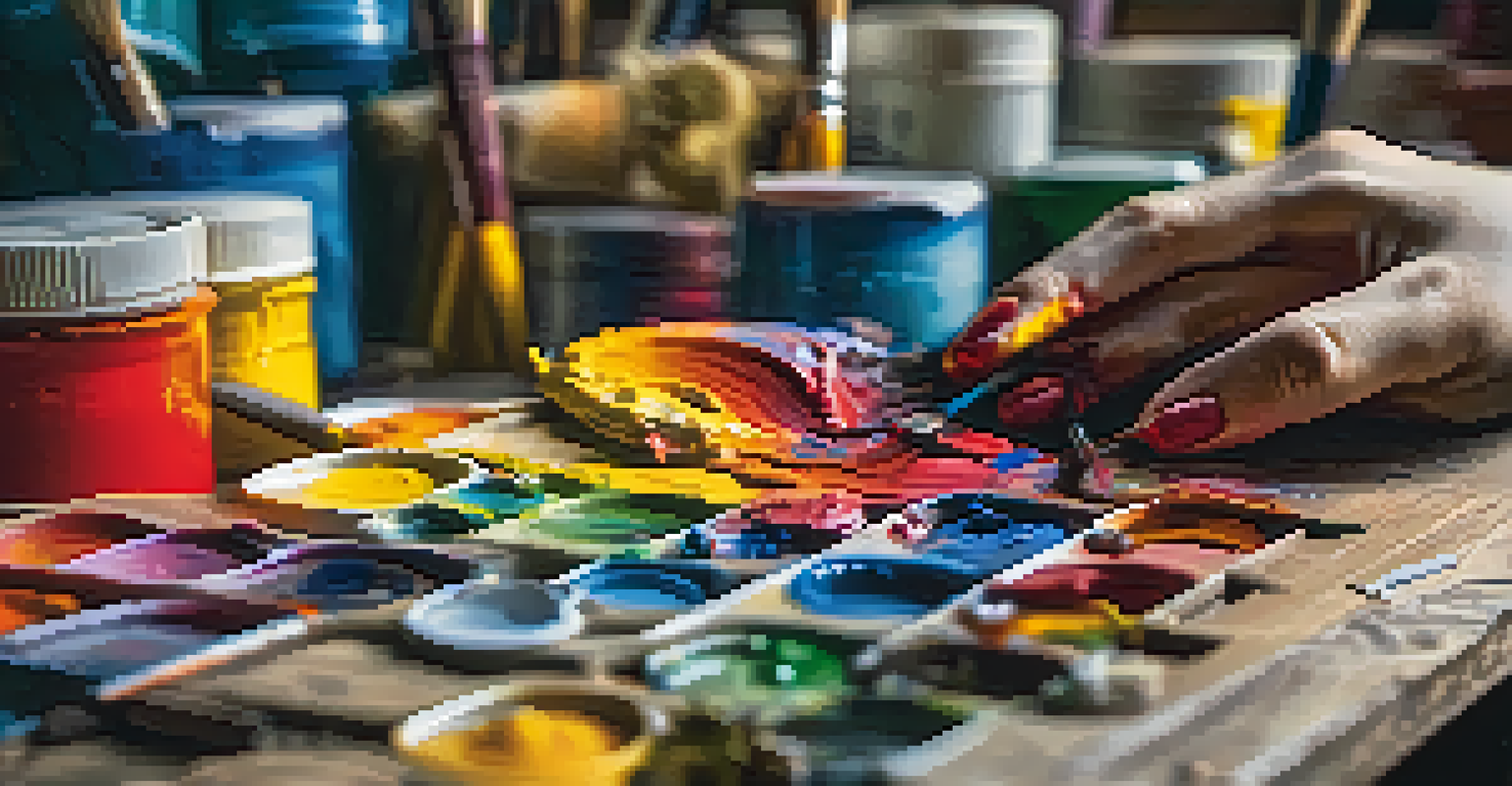Creating a Brand: How Artists Use Social Media for Promotion

Understanding the Power of Social Media for Artists
In today's digital age, social media is a game changer for artists. It offers a direct line to potential fans, galleries, and collaborators, making it easier than ever to showcase their work. Platforms like Instagram, TikTok, and Facebook serve as virtual galleries where artists can curate their brand image.
Creativity takes courage.
By sharing their creative process, behind-the-scenes moments, and finished pieces, artists can create a more personal connection with their audience. This engagement is crucial in building a loyal fan base that not only appreciates their art but also supports their journey.
Ultimately, mastering social media can elevate an artist's visibility and open doors to opportunities that may have been previously inaccessible. It’s not just about posting art; it’s about crafting a compelling narrative around their brand.
Choosing the Right Platforms for Your Artistic Style
Not all social media platforms are created equal, especially for artists. Each platform caters to different audiences and content types, so it’s essential to choose wisely. For instance, visual artists may find Instagram to be the most effective, while musicians might thrive on TikTok or YouTube.

Consider where your target audience spends their time. If you create intricate paintings, Instagram's visual focus allows you to showcase your work beautifully. Alternatively, if you’re a performance artist, platforms that support video content can capture the essence of your performances.
Leverage Social Media for Exposure
Social media allows artists to showcase their work and connect directly with fans and collaborators.
By aligning your artistic style with the right platform, you can maximize your outreach and engagement, ensuring your art reaches those who will appreciate it the most.
Crafting a Unique and Authentic Brand Identity
A strong brand identity sets an artist apart in a crowded digital space. This involves not only your art style but also how you present yourself online. Think about the colors, fonts, and overall aesthetic that represent you and your work.
The best way to predict the future is to create it.
Authenticity is key; audiences are drawn to real stories and genuine personalities. Sharing your journey, including challenges and triumphs, can make your brand more relatable. Your unique perspective is what will resonate with followers and convert them into loyal fans.
So, take time to define what makes you, you! This clarity will guide your content creation and help establish a consistent and memorable brand across your social media channels.
Engaging Your Audience Through Storytelling
Storytelling is a powerful tool for artists looking to engage their audience. Instead of merely presenting your artwork, share the stories behind each piece. What inspired you? What emotions do you hope to convey? These narratives can create a deeper connection with your followers.
Consider using captions, videos, or live streams to share these stories. This not only enhances the viewing experience but also invites your audience into your world as an artist. When people feel connected to your journey, they’re more likely to support and share your work.
Choose Platforms Wisely
Selecting the right social media platforms based on your artistic style can enhance engagement and outreach.
Remember, art is often about emotions and experiences. By weaving storytelling into your social media presence, you can create a vibrant community around your brand.
Utilizing Hashtags and Trends to Boost Visibility
Hashtags are like breadcrumbs that lead people to your content. By using relevant and trending hashtags, artists can significantly increase the visibility of their posts. Research popular hashtags in your niche and incorporate them strategically into your posts to attract a wider audience.
Participating in trends can also enhance your reach. For example, if a particular challenge or trend aligns with your art style, jump on it! This can attract new followers who share similar interests and appreciate your unique take on the trend.
However, it’s essential to maintain authenticity. Choose hashtags and trends that genuinely resonate with your work to ensure your audience sees the real you.
Networking and Collaboration with Other Artists
Social media is not just about promoting your work; it’s also an excellent platform for networking. Engaging with other artists can lead to collaborations that benefit everyone involved. By working together, you can pool audiences, share ideas, and create something unique.
Consider reaching out to fellow artists for joint projects, whether that’s a shared exhibition or a collaborative piece. This not only diversifies your portfolio but also fosters a sense of community within the artistic realm.
Engage Through Storytelling
Sharing the stories behind your artwork fosters a deeper connection with your audience and builds a supportive community.
Moreover, supporting other artists by sharing their work or giving them shout-outs can build goodwill and encourage reciprocity. Remember, a supportive network can amplify your reach and brand presence.
Analyzing Your Performance and Adapting Strategies
Once you start building your brand on social media, it’s crucial to track your performance. Most platforms offer analytics tools that provide insights into how your posts are performing. Pay attention to metrics like engagement rates, follower growth, and content reach to understand what resonates with your audience.
Use this data to adapt your strategies. If certain types of posts—like behind-the-scenes videos or tutorials—generate more interaction, consider focusing more on that content. Flexibility is key; the digital landscape is ever-changing, and being able to pivot will keep your brand relevant.

Ultimately, continuous learning and adapting your approach will help you refine your brand, ensuring it evolves alongside your art and audience.